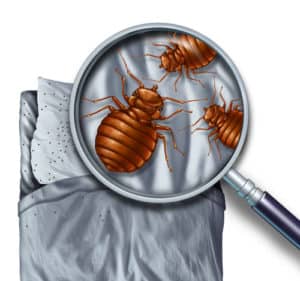New Landlord And Tenant Duties Regarding Bed Bugs in Colorado

Not more than 96 hours after receiving notice of the presence or possible presence of bed bugs, a landlord:
- Shall inspect or obtain an inspection by a qualified inspector of the dwelling unit; and
- May enter the dwelling unit or any contiguous unit for the purpose of conducting the inspection.
If the inspection of a dwelling unit confirms the presence of bed bugs, the landlord shall also cause to be performed an inspection of all contiguous dwelling units as promptly as is reasonably practical.
Except as otherwise provided, a landlord is responsible for all costs associated with inspection for, and treatment of, the presence of bed bugs.
If a landlord, qualified inspector, or pest control agent must enter a dwelling unit for the purpose of conducting an inspection for, or treating the presence of, bed bugs, the landlord shall provide the tenant reasonable written or electronic notice of such fact before the landlord, qualified inspector, or pest control agent attempts to enter the dwelling unit. A tenant who receives the notice shall not unreasonably deny the landlord, qualified inspector, or pest control agent access to the dwelling unit.
A tenant shall comply with reasonable measures to permit the inspection for, and treatment of, the presence of bed bugs, and the tenant is responsible for all costs associated with preparing the tenant’s dwelling unit for inspection and treatment. A tenant who knowingly and unreasonably fails to comply with inspection and treatment requirements is liable for the cost of subsequent bed bug treatments of the dwelling unit and contiguous units if the need for the treatments arises from the tenant’s noncompliance.
If any furniture, clothing, equipment, or personal property belonging to a tenant is found to contain bed bugs, the qualified inspector shall advise the tenant that the furniture, clothing, equipment, or personal property should not be removed from the dwelling unit until a pest control agent determines that a bed bug treatment has been completed. The tenant shall not dispose of personal property that was determined to contain bed bugs in any common area where such disposal may risk the infestation of other dwelling units.
Source: leg.colorado.gov















 Accessibility
Accessibility